This academic year, 2024-25, Elms Elementary School and Jackson Liberty High School, both in Jackson Twp., have participated in the Jersey‑Friendly Yards School Certification Program, spearheaded by the Barnegat Bay Partnership in collaboration with the Ocean County Soil Conservation District. From soil sampling to pollinator garden planting, students are cultivating more than plants—they’re growing scientific minds and environmental responsibility.
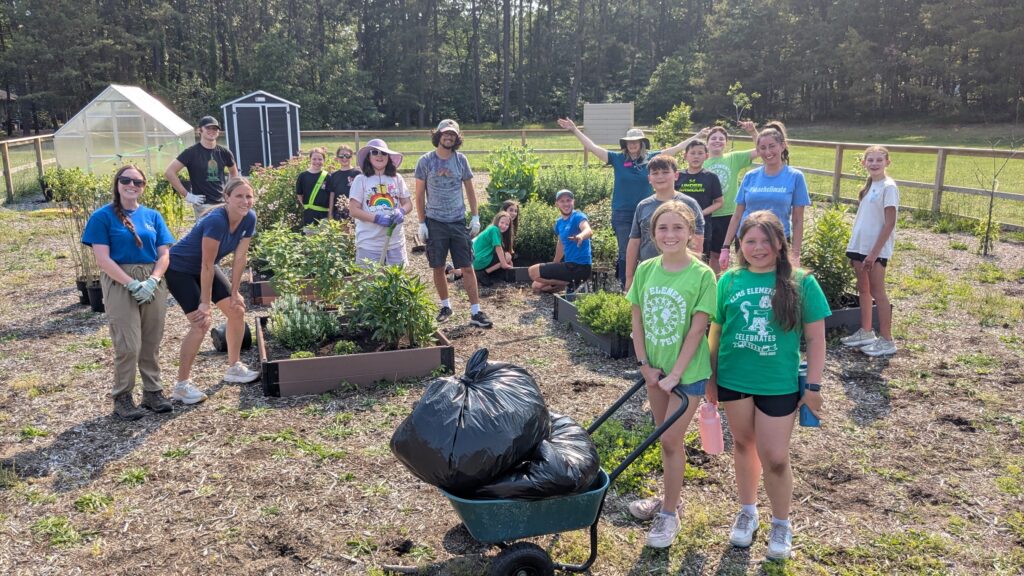
Program Overview
The Jersey‑Friendly Yards School Certification Program supports schools within the Barnegat Bay watershed to plan, design, and install Jersey‑Friendly gardens through four core components:
- Know Before You Grow (site assessment, soil analysis, garden plan and design)
- Conserve Water (water-wise practices, fertilizer considerations)
- Welcome Wildlife (native plants and habitat creation, safe pest management)
- Complete a Jersey‑Friendly Project (garden installation, documentation)
These efforts reflect an ecosystem-based approach that culminates in a Jersey‑Friendly garden or project—one that supports water quality, water supply, living resources, and responsible land use, all in service of a healthier Barnegat Bay watershed. Through the certification steps, students explore the ecological components of the watershed and evaluate impacts of landscape practices. For example, fertilizer use, students learn how over-application can lead to eutrophication and the degradation of aquatic ecosystems in local creeks, rivers and the bay. With these insights in mind, students take action by designing schoolyard gardens that minimize harmful runoff and instead promote ecological health. This holistic approach—rooted in the values of watershed awareness, habitat enhancement, and sustainable landscaping—is central to the Jersey‑Friendly Yards mission, as outlined at www.jerseyyards.org.
Elms Elementary School
Green Team Advisor: Shaina Brenner, 2nd Grade Teacher
Jersey-Friendly Yards Team: Becky Laboy, Education Outreach Coordinator, OCSCD & Bailey Sanders and Caroline McFarland, Stewardship Specialists, BBP
Elms students began with sketching garden layouts, mapping sunlight, and setting watershed-friendly goals. They completed Step 2: Start With Healthy Soil, collecting soil samples and testing them for texture, pH and NPK. The findings shaped their garden design. Using the JFY Plant Database, students chose native species funded by the JFY program and conducted a collaborative planting—inspiring stewardship from the ground up.
“Planting day with our Green Team was more than just adding plants to our Outdoor Environmental Learning Center and Garden… It was about empowering our students to see themselves as caretakers of the earth. The Jersey-Friendly Yards certification process enables students to be involved in every step while providing teachers with clear, practical guidelines to ensure these projects succeed. Planting the seed of environmental responsibility when students are young helps nurture a lifelong connection with the world around them.” ~Shaina Brenner, 2nd Grade Teacher and Green Team Advisor
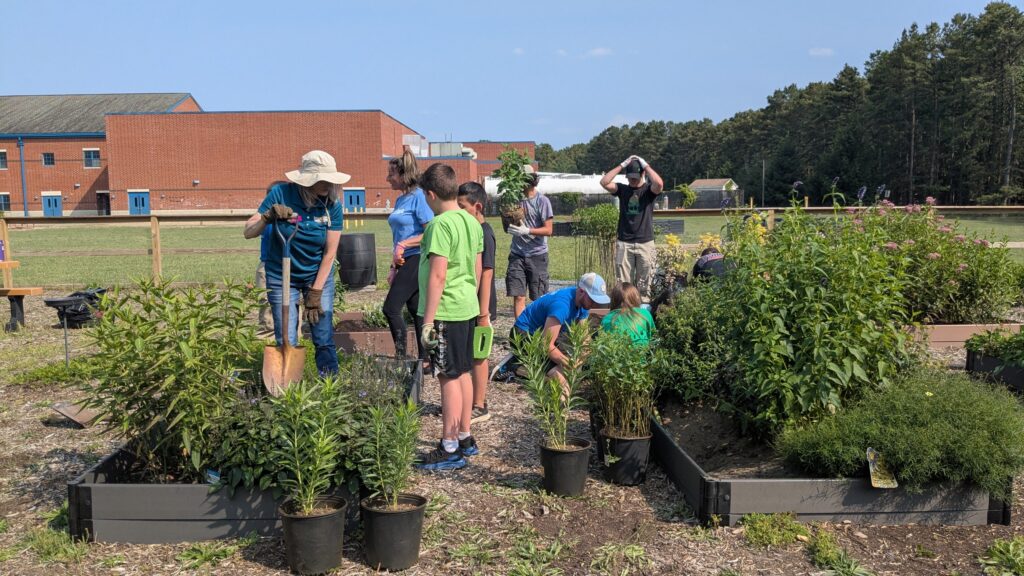
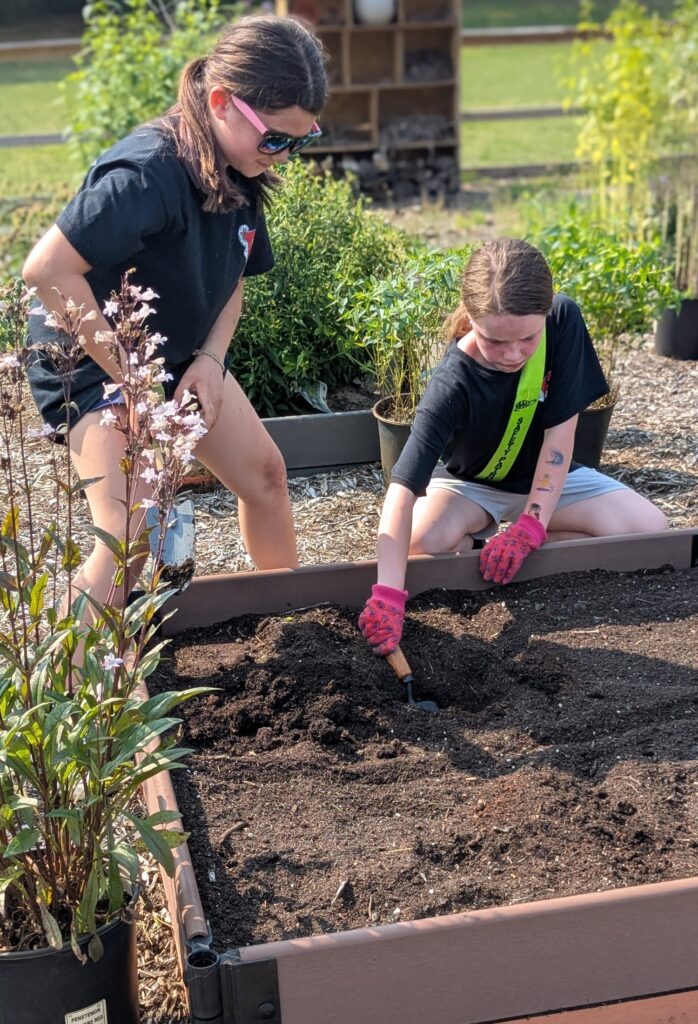
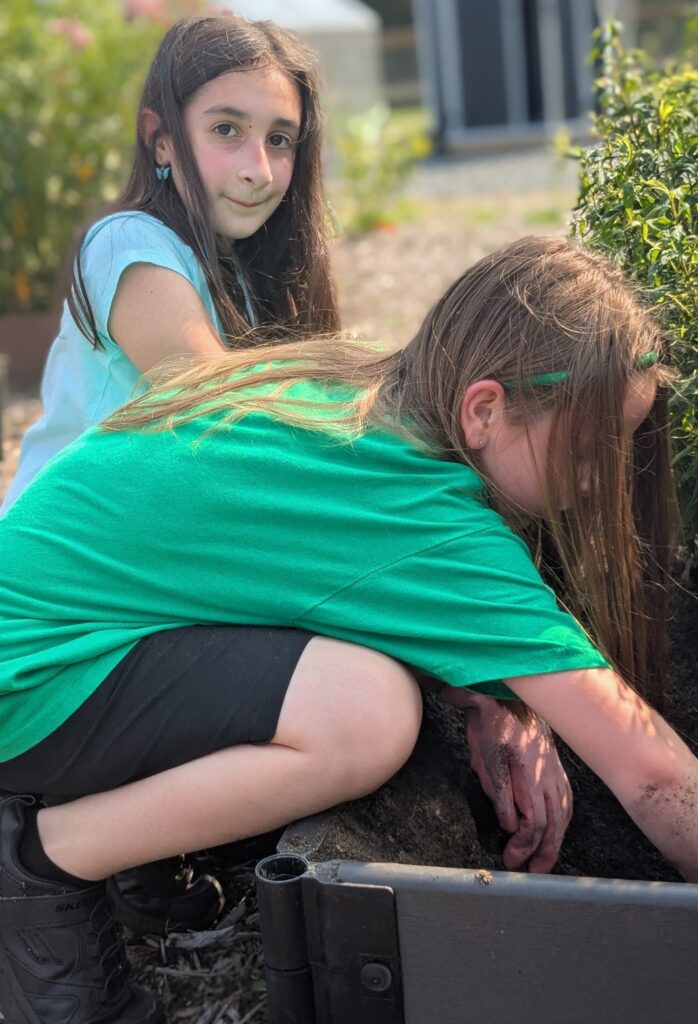
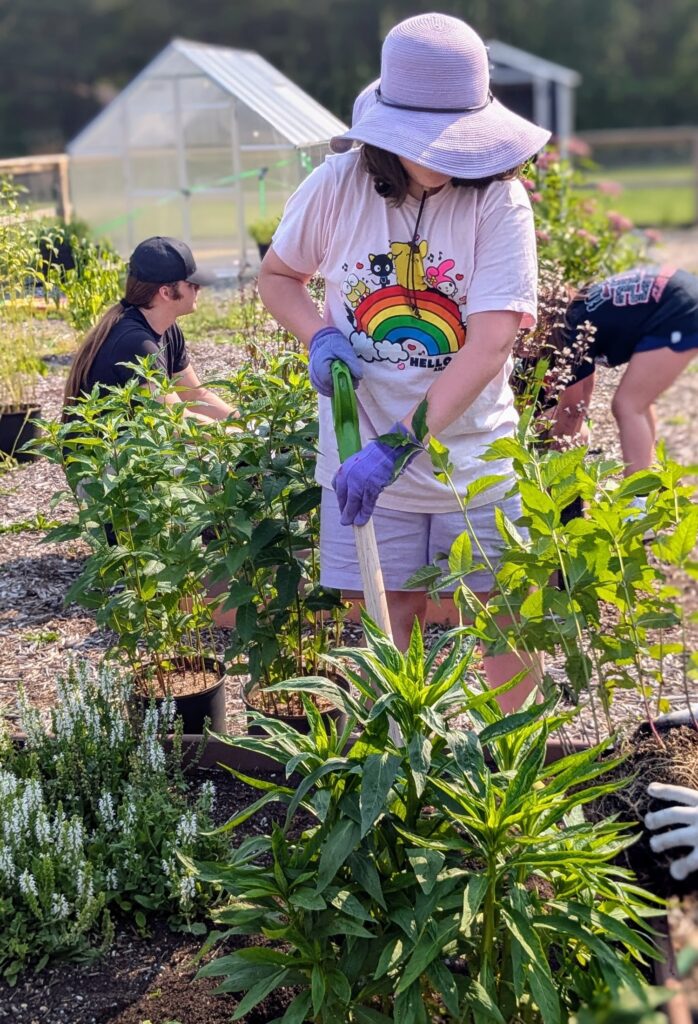
“Walking out onto the school yard and seeing the Elms Elementary students excited and ready to plant their garden was incredible. Knowing they took all the steps to understanding the impact of the native plants on the school property tells me that we’re helping to empower them to be lifelong stewards of the bay. Great job, Elms!” ~Nina Sassano, Associate Director of Outreach, Barnegat Bay Partnership
Jackson Liberty High School
Environmental Club Advisor: Ted Werner, Science Teacher
Jersey-Friendly Yards Team: Becky Laboy, Education Outreach Coordinator, OCSCD & Bailey Sanders and Caroline McFarland, Stewardship Specialists, BBP
Jackson Liberty High School students followed a similar path as Elms Elementary: introduction to the Jersey-Friendly Yards initiative, soil collection and analysis, plant selection and garden design. With ecological purpose they chose native plant species for their garden, funded by the JFY program and procured through Cicconi Farms, and the students installed their garden this spring.
“Transitioning from classroom to garden gives students ownership. They apply textbook concepts—like soil science, ecosystems, and planning—in real time. With each soil test and planting session, their confidence grows—and so does their connection to our local environment and watershed.” ~Becky Laboy, Education Outreach Coordinator, Ocean County Soil Conservation District
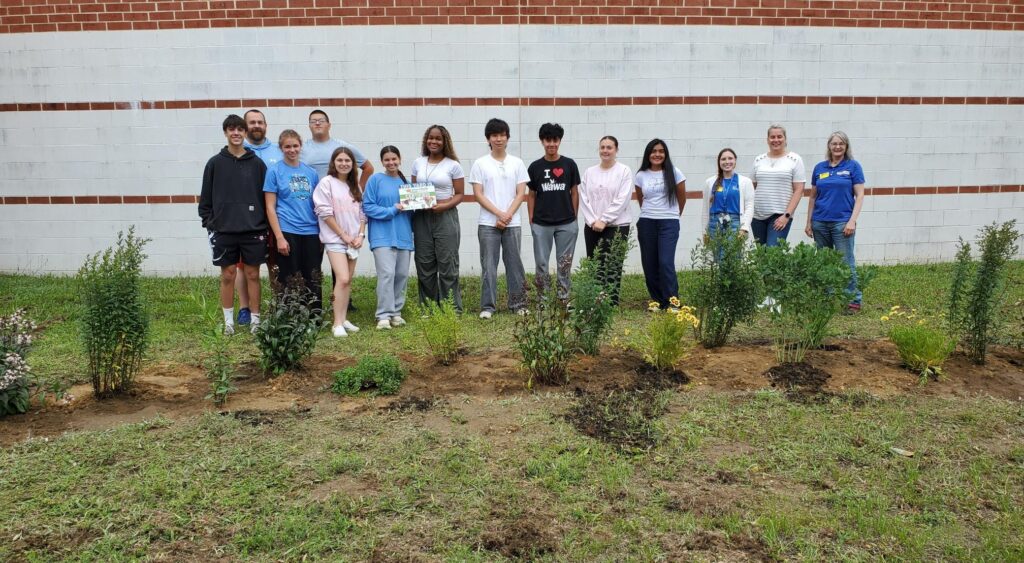
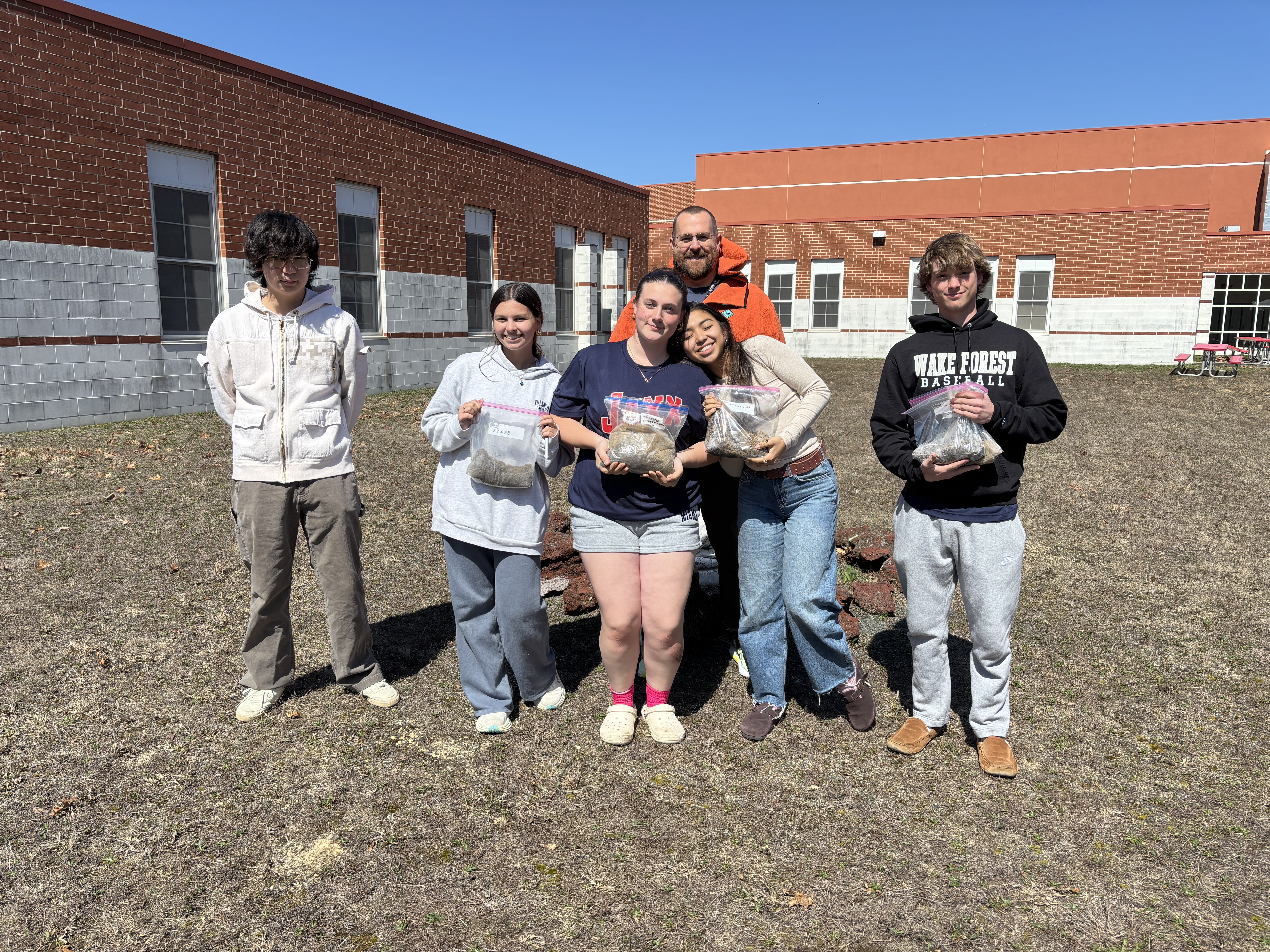
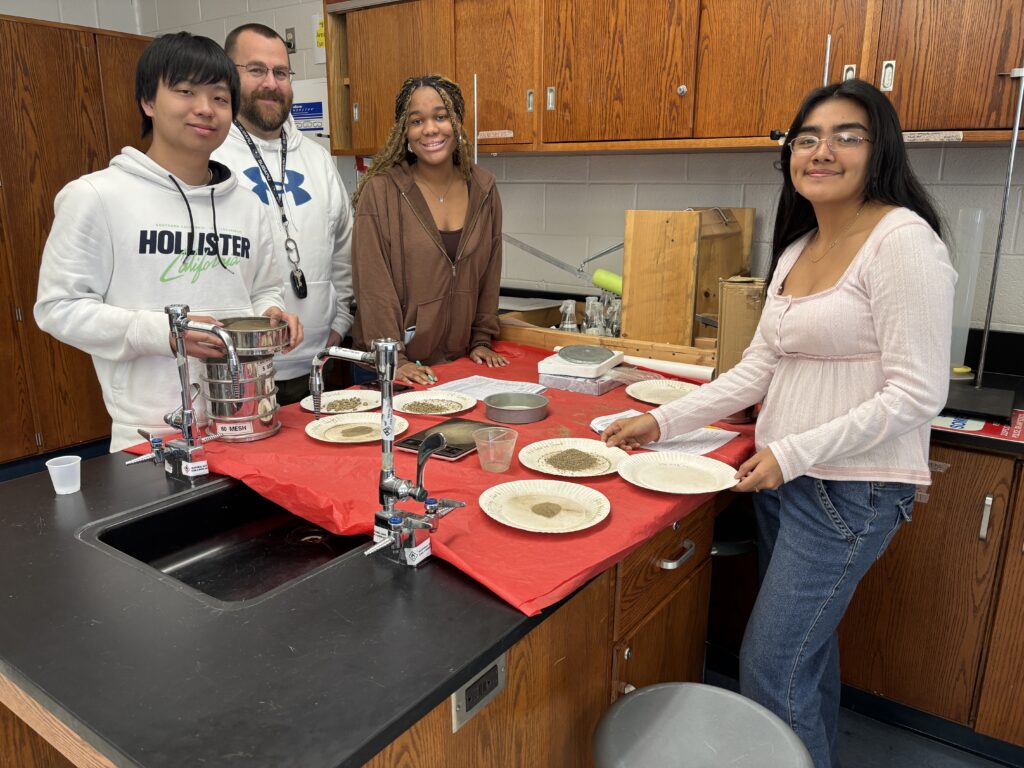
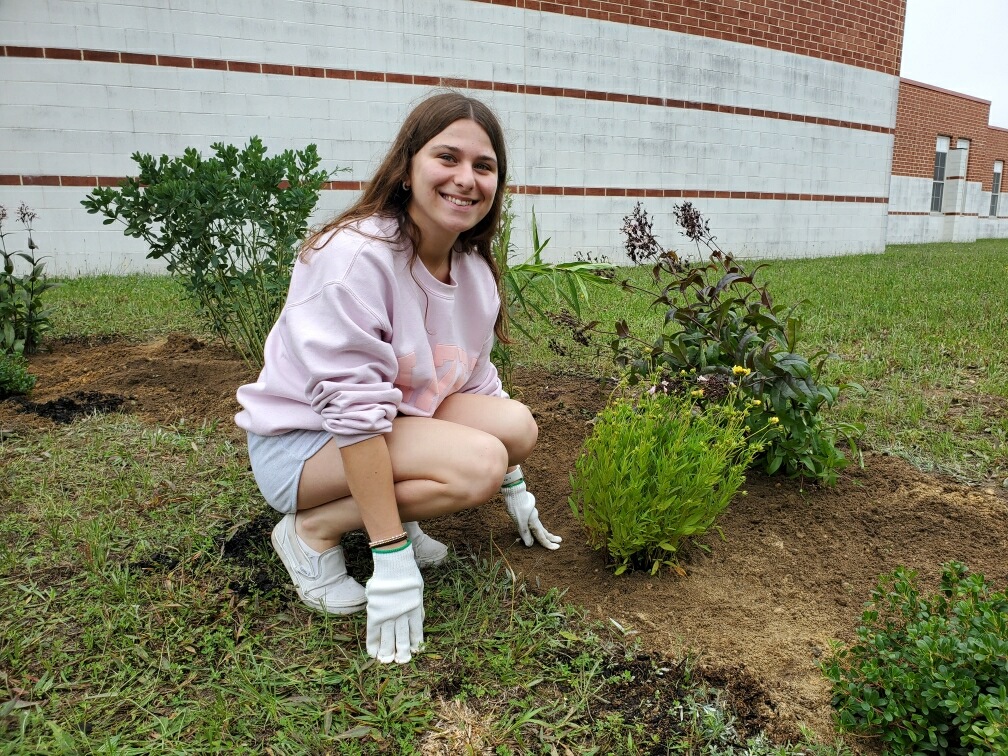
Behind the Scenes: Outreach & Support
Becky Laboy, OCSCD’s Education Outreach Coordinator worked with the Barnegat Bay Partnership’s stewardship team—Bailey Sanders and Caroline McFarland—to co-lead lessons, provide garden planning guidance, and support the schools through each step of the certification process. Together they provided outreach programs and hands-on planting events. Students participated in soil science lessons, including sampling and analysis, learning how to determine soil texture using soil sieves and how to test for pH and nutrient levels (NPK) using classroom-friendly soil test kits. These hands-on investigations provided students with essential data that directly informed their garden design plans, especially plant selection and site preparation.
In addition to technical skills, the program emphasized soil’s role in ecosystem health and water quality, helping students understand how compacted or poorly managed soil can contribute to stormwater runoff and pollution. This instruction helped connect these soil concepts with the larger Barnegat Bay watershed context, reinforcing the goals of the Jersey-Friendly Yards initiative.
Building Toward Certification
Both schools are documenting their journey through:
– Soil test reports (texture, pH, nutrients)
– Garden maps and design sketches
– Plant lists from the JFY database with scientific names
– Photos from soil sampling to bloom, documenting progress
– Lessons on soil, water conservation, native plants, and watershed ecology
Their upcoming steps include formal submission of documentation via their custom upload links, plus plans for school community education and advocacy—school signage, media outreach, and potential expansion to rain barrels or wildlife habitat features.
Cultivating Conservation
These projects will stand as testaments to student-led conservation and community engagement. They exemplify how hands‑on environmental education can foster healthy ecosystems and watersheds across Ocean County! JerseyYards.org was developed by the Barnegat Bay Partnership with a grant from the New Jersey Department of Environmental Protection. The Jersey-Friendly Yards initiative is supported through funding from the Environmental Protection Agency, and is implemented by the Barnegat Bay Partnership in collaboration with the Ocean County Soil Conservation District.
